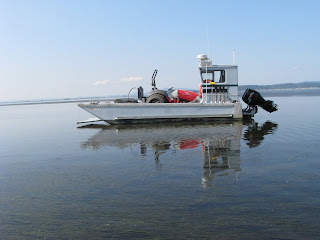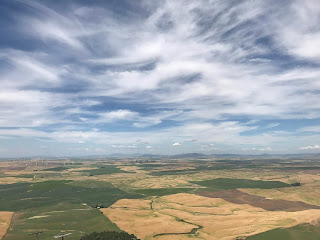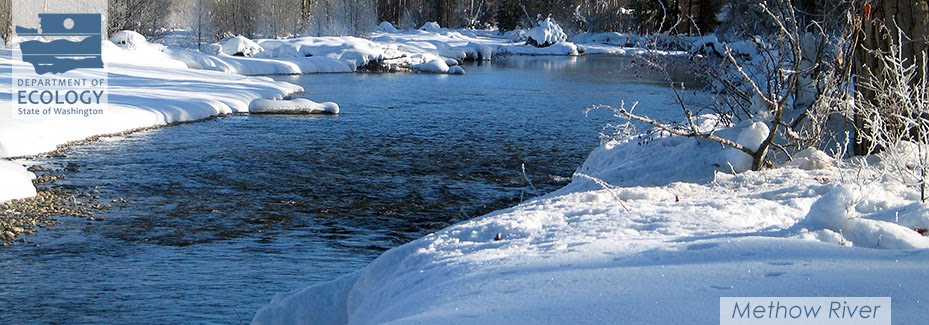Bill Dewey new co-chair of our Ag/Water Quality committee
Livestock producers, crop growers, shellfish farmers, environmental groups and Ecology are sitting at the table – together – finding common ground on protecting clean water and supporting a healthy agricultural industry.
 |
| Bill Dewey, committee co-chair, on his clam farm on Samish Bay. |
Most recently, the Agriculture and Water Quality Advisory Committee came together on October 3 in Union Gap to discuss a number of statewide and local issues, as well as welcome Bill Dewey of Taylor Shellfish as the new co-chair. Dewey has served on the advisory committee since it began in 2014 and brings more than 35 years of shellfish farming experience.
“I believe the best approach to our complex challenges is to work in partnership,” says Bellon. “I’m grateful that the agricultural community is willing to continue our work together to make meaningful strides toward identifying lasting solutions that keep working lands productive in an environmentally friendly way.”
Ecology Director Maia Bellon first created the advisory committee to improve our working relationships with the agricultural community. The group provides a forum for open dialogue about complex issues that affect the industry and how they intersect with efforts to prevent water pollution.
“Our state is making huge strides through collaboration, which allows us to reduce conflict and have open dialogue on difficult issues. Bringing people together leads to solutions that stick,” said Dewey at the October meeting. As a shellfish farmer, Dewey brings a unique perspective to the group as part of an industry that is directly affected by pollution flowing downstream but who also understands the daily challenges of farming.
 |
| Clam farms need tractors, too. Dewey's boat, The Clamdango, is used to bring a tractor back to land. |
Bellon relies on the committee to connect with real farmers and ranchers who provide valuable feedback on our work.
Since the group’s inception, they’ve discussed many topics, including:
The meeting is also an opportunity to talk about priorities for future years and share local success stories. Committee members don’t always agree, yet the group remains committed to exploring innovative ways to ensure clean water for farms, clean water for communities, and a healthy agricultural industry.
Since the group’s inception, they’ve discussed many topics, including:
- Developing voluntary clean water guidance
- Updating and implementing the Concentrated Animal Feeding Operation general permit
- How to evaluate risks to water quality on agricultural lands
- An innovative agreement with Pacific Northwest Direct Seed Association
The meeting is also an opportunity to talk about priorities for future years and share local success stories. Committee members don’t always agree, yet the group remains committed to exploring innovative ways to ensure clean water for farms, clean water for communities, and a healthy agricultural industry.
 |
| Views of another type of Washington farming: on top of Steptoe Butte looking at farm hills in the Palouse region. |
“One of the most important aspects of this committee is the opportunity for face-to-face interactions. Personally engaging with those directly affected pays tremendous dividends to all of us. I recognize and value that it’s not enough to simply talk about what needs to be done. The how can be just as important. I believe we’ve made real progress,” Bellon said.
For more information on the committee and the meeting schedule visit our Agriculture and Water Quality Advisory Committee webpage.

No comments:
Post a Comment